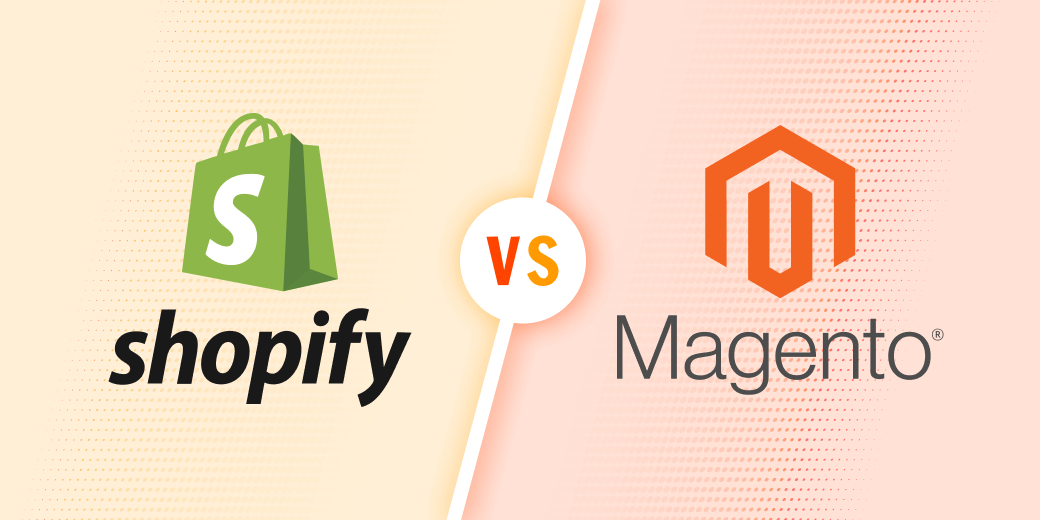Blog Details
- home
- Blog Details

Shopify vs Other Platform
- Admin
- September 10, 2022
Shopify vs Other Platform
When it comes to online store development, there are plenty of ecommerce platforms you can choose as per your business scope and requirements. All you need to do is to share your requirements with an Ecommerce Development Company and they will suggest the best platform that suits your needs. However, in recent times, ecommerce businesses are migrating their stores from other platforms to Shopify for the right reasons. Shopify has emerged as one of the best ecommerce platforms with its intuitive, user-friendly interface and some brilliant, flexible features and functionalities. If you have an existing online store on the other platform and you want to migrate your store to Shopify, this post is for you. However, it is not an easy task to migrate from one platform to another. It is like moving from one house to another all the luggage. Hence, we need to plan it in advance and stick to it during the whole process. Hire a Shopify developer if you don’t have an in-house Shopify expert. It will make the migration process easy and smooth.
WordPress vs Shopify

When comparing these two options, Shopify is the winner for sales-focused businesses that want an easy-to-use, full-featured and relatively automated e-commerce solution. WordPress takes far more getting used to, however, its the hands-down champion when it comes to versatility. WordPress is the clear winner in this round. While Shopify offers a variety of store themes, the options pale in comparison to the WordPress theme universe. There are thousands of ready-to-go free and low-cost WordPress e-commerce store themes, versus Shopify’s hundreds.
In terms of back-end business management, even the most popular WordPress plugin, WooCommerce, can’t match everything that Shopify delivers. That said, WooCommerce powers nearly one-third of all online stores and offers plenty of built-in tools including shipping label printing, inventory tracking and order routing. You also get a free mobile WooCommerce app for on-the-go store management.
When it comes to merchant services, both platforms let you take payments online and you can choose from many different payment processing solutions on each. Since both support a wide variety of payment gateways, this round can be considered a tie. However, Shopify has some added fees that might be deal breakers.
Magento vs Shopify

This post discusses everything that you want to know about the seamless Magento to Shopify migration. Magento has been one of the most preferred ecommerce platforms due to its unimaginable features and benefits. With superior add-ons and apps, Magento has helped millions of ecommerce businesses to boost their traffic and revenues to great margins. The migration process from BigCommerce to Shopify will take the transfer of all the contents of the website and the transfer of the domain name. In addition to this, you will also need to make adjustments to your website and SEO settings to keep your Google Search Rankings intact.
Shopify vs Bigcommerce

Shopify |
BigCommerce |
|---|---|
| Has a range of themes that are not available elsewhere | Has high loading speed |
| Large community to help you out with queries | Is easier to use |
| 24 hours dedicated support team | Tonnes of SEO features to help you rank on Google |
| Much easier to use | Excellent multi-channel selling capabilities |
| Good backend with a host of ways to add functionality |
Both BigCommerce and Shopify use the ‘drag and drop’ editors which are almost similar in quality, but Shopify has a small advantage that it lets you work with more types of content blocks.
So now you have two great platforms which you can choose to build your online store, and are in a conundrum as to which one to choose? It all depends on the size of your team and how you would like to scale your online store. If you are leading a small team and are just setting up an online store for the first time, we would highly recommend Shopify. If you would like to manage your little online store all by yourself, then BigCommerce will tie you down with technical terms and features that you will find hard to execute. Instead, choose Shopify for its intuitive nature and for the fact that it offers more customizable features. Also, with Shopify, you get access to a community of online merchants willing to work with one another, an extensive list of Shopify design and development experts, and app partners that can help you succeed
Shopify vs Wix

Wix offers limited eCommerce functionality and site customization options. That is one of the biggest reasons why business owners end up migrating from Wix to Shopify. Wix and Shopify are the two most popular website builders who provide robust eCommerce platforms. Both Shopify and Wix provide mobile-responsive templates, which means whichever platform you choose, should guarantee a great shopping experience across all devices. Wix might offer free templates, but the options are very limited for eCommerce businesses and the flexibility of customization is much lower. Shopify is a better choice here. Wix might look like value for money on the onset of things but the hidden costs may result in higher expenses. Shopify offers more inclusive plans, making it a better choice. Shopify beats Wix for the huge number of payment options it offers. Well Wix will require you to install an additional solution or integrate your store with an external platform for inventory management and Shopify is the ideal choice for businesses of all sizes as it makes it easy to keep track of product inventory. We know the process of migrating from Wix to Shopify can be overwhelming. That’s why we’re helping brands migrate their stores to Shopify now.
Customize Your Shopify Store As Per Your Business Requirements
Now, the customization time is here. One of the main reasons why ecommerce store owners prefer Shopify is the customization. It is more easy to customize compared to other platforms. Customization is also essential, but experts recommend doing it once the migration process is over. It will help you avoid some risks. You can have an eye-catchy website that lures your customers in just no time with customization. You can select from 10 free and 64 premium themes to customize your Shopify store. Suit yourself.
Why Shopify?
Shopify comes with intuitive, intelligent features that makes it stand apart from other platforms. It gives your store more flexible shipping options with the help of their partners and smart integrations. Shopify wins due to its ease of use and more backend support to set up an advanced online store in just a few days.

